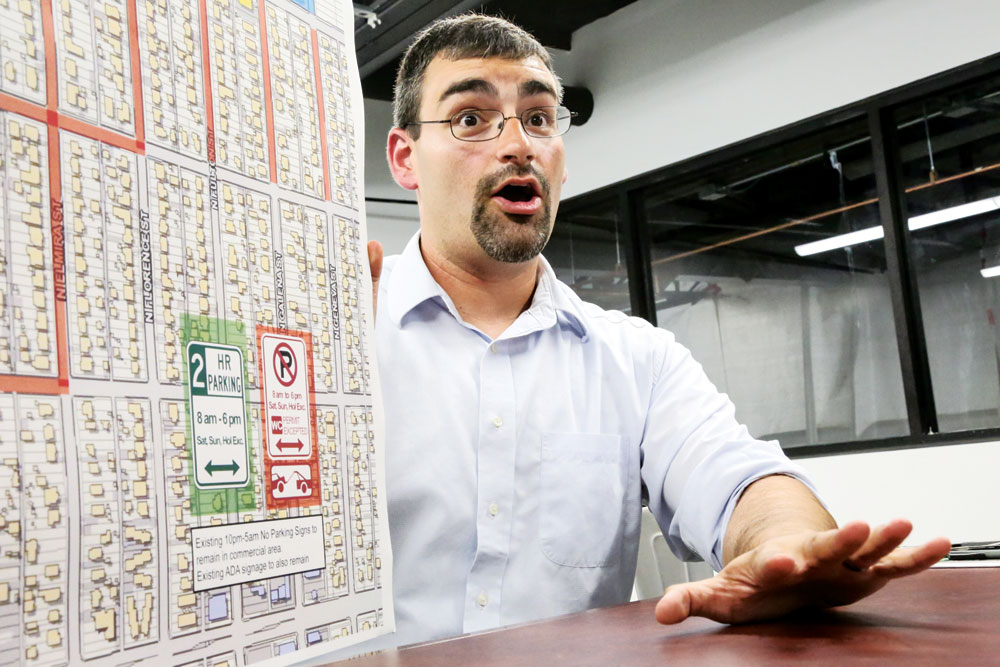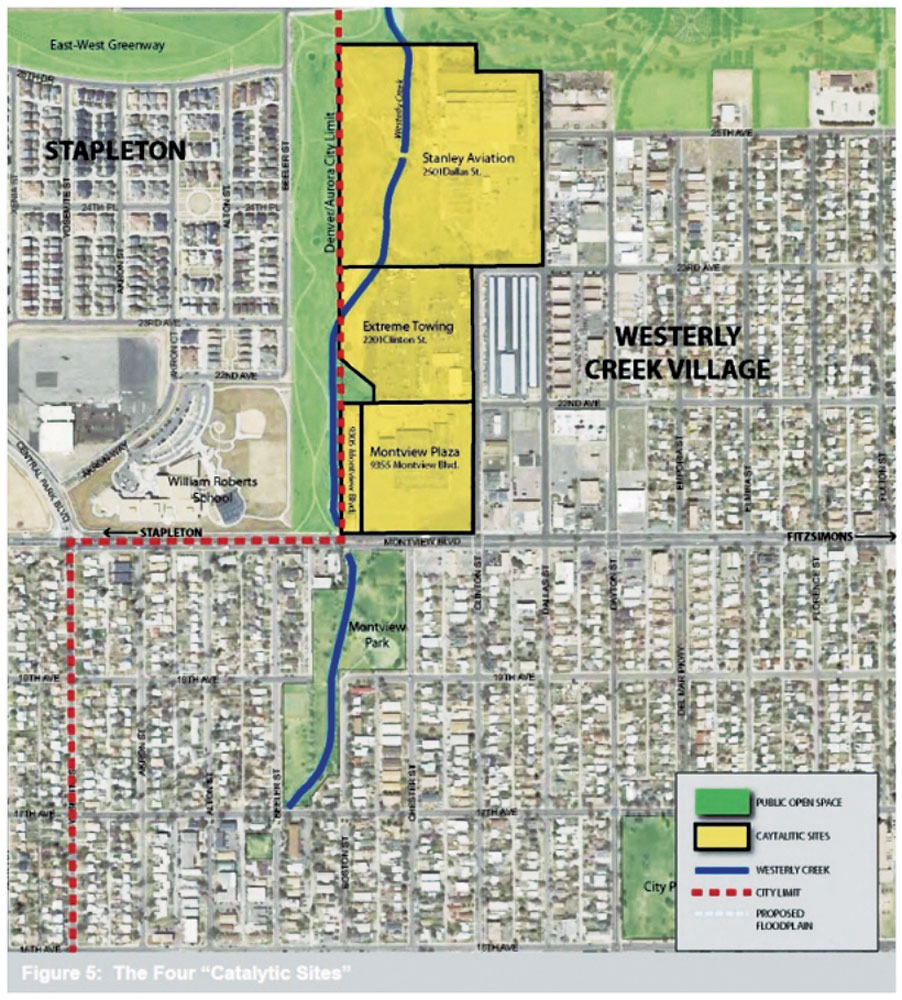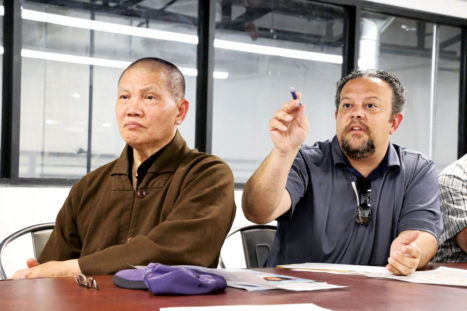
Park Aurora Program Manager Robert Ferrin talks to business owners near Stanley Marketplace about managing parking for the influx of vehicles in the area.
Stanley Marketplace’s popularity may be causing long walks for consumers, but it’s better than having abandoned or underutilized stores surrounded by empty parking lots. Parking is a scarce public resource that needs to be managed based on the area’s needs, says Robert Ferrin, the city’s parking and mobility manager. In response to the recent parking crunch in northwest Aurora around Stanley Marketplace, the City of Aurora has proposed a “Westerly Creek Parking Management Plan” that calls for time restrictions for on-street parking and a new residential permit program for besieged neighbors.

The dashed red line is the Denver/Aurora border. The yellow areas identify Stanley Marketplace and nearby business areas. Streets in and within a few blocks of these business areas are being considered for time-restricted parking. Permits are being considered for parking in nearby residential areas.
The public is invited to a Sept. 14 meeting to be hosted by NANO, the Northwest Aurora Neighborhood Organization. The meeting begins at 7pm at the Moorhead Recreation Center, 2390 Havana Street.
Ferrin says the plan will not be implemented until January. He’s using the intervening months to meet with residents and business owners to tweak the initial proposal and get people used to Aurora’s new policy of “pro-active parking enforcement.”

Park Aurora parking patrol vehicle.
Ferrin is presenting his “Phase I” plan in a series of meetings that started with a July 31 gathering at Stanley for nearby business owners. The plan’s essential features consist of:
- On-street parking within a block or two of Stanley would have two-hour restrictions from 8am to 6pm excluding weekends and holidays.
- Neighbors living east and south of the time-restricted blocks (and their guests) would have residential permits for on-street parking. Denver has long had a similar program in congested neighborhoods such as Congress Park.
- Parking enforcement officers in Park Aurora vehicles would pass through the area four to five times per day. The vehicles use GPS and digital cameras to accurately identify cars that have lingered too long in an on-street space.
- The first offense gets a warning; the second offense gets a $30 fine.
- Ferrin described his approach as a low-cost option between doing nothing at one extreme and building expensive parking structures at the other.
Initial reaction from the 10 business owners appeared to be generally favorable and in agreement with Ferrin’s statement, “Let’s start with something rather than do nothing.” Discussion focused on details such as whether the two-hour time limit needed to be shortened or lengthened and various businesses’ need for loading zones. Mark Shaker of Stanley Marketplace opined that the two-hour time limit would work for the 90 percent of Stanley patrons whose visits last two hours or less. All agreed that some level of parking management is essential as the area builds out due to the expected impact of three other developments that will draw vehicles:
- The 172-unit Stanley Residential project
- The new ball fields on 25th Ave.
- The eventual construction of an Aurora Public Schools middle school/high school campus on 25th between Iola and Fulton streets
At its Aug. 14 meeting, the NANO board took no official action on Ferrin’s initial proposal but acknowledged parking is a growing problem in the neighborhood. Some board members urged the city to minimize the impact of new development on existing residents and businesses.

Owners of businesses near Stanley met with Robert Ferrin of Park Aurora to talk about parking solutions. Left, Thich Tri Vien, Priest at Phat Hoc Vien Bodhidharma Temple and Cary Walko, COO of Kurtex Property Management Co. consider Ferrin’s map showing streets that might have time-restricted parking.
Ferrin will hold a second round of meetings this fall with residents and businesses before unveiling the final parking management plan in January. He said the city’s practice is to test a plan for a full year before making substantial changes. This gives time for people to adjust their behavior including where they park, and how they might access a business (e.g., walking, biking, carpooling). In the meantime, he encouraged the business owners to look at additional tools such as leasing of underutilized parking areas or valet parking.
Ferrin says he welcomes comments from the general public about parking plans for this corner of northwest Aurora. Comments can be sent to www.parking@auroragov.org.



0 Comments